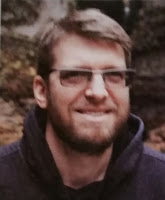Then, along came the Idaho Writers Rendezvous http://idahowritersrendezvous.blogspot.com/ and I'm way fired up now.
The boring part of the story, which I'll get out of the way now, is that I was not granted professional leave (from school) to go to the conference, so I had to dash downtown, park and go to sessions, dash to school, teach three periods and then dash back downtown for more. And I only got one parking ticket! Oh, the things a writer has to endure ;).
Neither Cindi nor I has ever published anything, so what we know about the lingo and the process is mostly thanks to Google. I did go hear Anthony Doerr speak last spring with the express purpose of asking how to go about getting published. I know--presumptuous of me. But he's a Boisean, so whatever. Fortunately others had the same questions in mind, so from that I gathered that you get an agent and go from there--boom! Or not.
I won't detail all of the sessions I attended at the Idaho Writers Rendezvous, but every one taught me specific tips that will be useful--and already are useful to me. Best of all, though, were the two one-on-one sessions I had the courage to jump into at the last minute.
 |
| John Helfers, author & editor |
This meeting was called a manuscript evaluation and John had a dozen pages of NPD in advance, which he marked up with comments and corrections. Then we met for over a half hour. (He was generous with his time, as I was the last appointment.) My biggest take-away from the meeting was the reminder that writers need to "show me--not tell me" or write out the action instead of describing it. In general, his comments both during the session and again the next morning when I ran into him were that I should trust in the story and in my writing. It was very affirming. Oh, and what a coincidence...his wife, who is also a writer, is researching soiled doves in the West. I am hopeful that she and I can communicate and share some of our resources.
Much of the conference focused on indie publishing (self-publishing) as that seems to be the preferred direction for most authors. Traditional publishing is thought to be too slow and that the author gives up some control with an agent a publisher. With indie publishing, the writer depends heavily on editors before putting their work on the market. With an agent, it seems you hand your work off, maybe make some revisions and then it's in their hands, though I'm not totally clear on that.
 |
| Elizabeth Wales Agent, Wales Literary Agency |
Ms. Wales was receptive, yet challenging and I thoroughly enjoyed the chance to pitch North Pine Dove. Some of the questions she asked were ones I had prepared for by writing queries. Others caught me off guard and made me sputter. All in all, the process made me want more! And in the end, she asked me to send her the manuscript when we're finished with the editing process. That felt good.
As I reflect on the whole experience I realize that of course it was fun. People actually wanted me to talk about NPD. Seriously, though, the more people challenge me to clarify the story, the motives, the message--the better it becomes. John Helfers told me I might want to "take it to New York" and after hearing that twice, I smiled sheepishly and said, "I have no idea what that means." (It means you actually go to New York and try and meet with agents and pitch your book!) I'm up for that. Cindi? :) Tax deductible! But hey, maybe we only have to go as far as Seattle.
Here is the logline I'm working on, though it's still twice as long as it should be:
Women's lives matter, yet our words, our everyday lives--even our names--are lost, whether we lived a thousand years ago, or a generation ago. And worse yet, if we are the disenfranchised, we have vanished completely.
Norah Martin never thought of herself as a trailblazer. It was a mystery even to her why she became consumed with finding out what happened to a young farm family. Then suddenly, she could travel back in time to solve their mysteries and discover why the missing wife, Eleanor, ended up in a tenderloin district. She would be the voice Eleanor never had, and in the process, heal herself and others.
If you read this far, you really should click on "join" in the upper right hand corner, if you haven't already.
